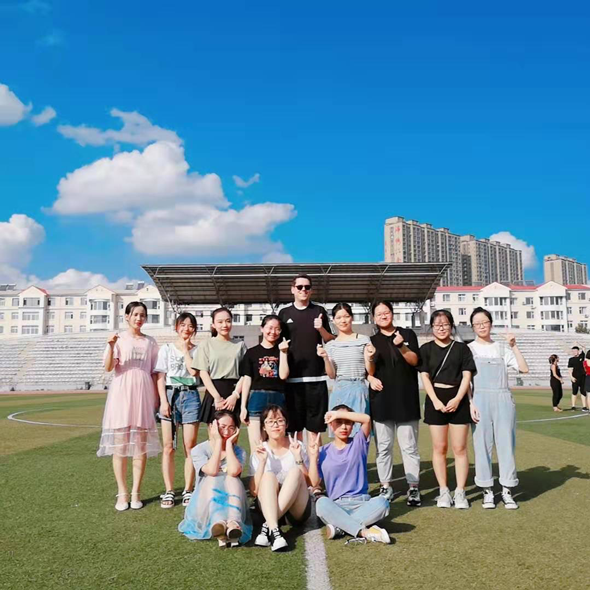
This past summer, I had the opportunity to travel to China to teach English to a group of nursing students at the Jilin Medical University. The program was sponsored by the Maryknoll Fathers, an American religious order. These missionaries go to distant lands to preach the Gospel and to encourage others to live by its tenets. Maryknoll priests have been ministering in China for over 100 years. For the English language program, they assembled a group of teachers of various ages and backgrounds, including authors, pediatricians, youth ministers, a waitress, and a retired army sergeant.
Each day of instruction began in a large lecture hall with all of the 120 Chinese students together. One of the teachers would define and explain the larger vocabulary words. After an hour, the students would divide into groups of about ten to read and discuss an article about a particular theme. The teachers would rotate around the various groups to expose the students to different teaching styles and personalities. We also had the opportunity to spend time with our students outside of class in the cafeteria and even in karaoke halls!
One of the most interesting articles that we studied was about St. Valentine’s Day. My students had many questions and comments about this holiday and about the concept of love in general. Though none of my students was Christian, I broached the topic of God’s unconditional love for each of us. This proved to be a small, but genuine opportunity for evangelization.
During our discussion, I realized that each of us understands the concept of love in a unique way. For instance, one of my students indicated that her father demonstrated his love for her by criticizing her. Most Americans, including myself, would not generally share such a viewpoint. It is important to recognize, however, that our perspectives on love are shaped by our cultures, countries of origin, families, religious beliefs, life experiences, and so forth. Our different ideas about this topic need not divide us. Every person, inherently unique and valuable, has something to teach us about love.
As Christians, we believe that all human beings are created in the image and likeness of God. This is the source of our dignity and of our uniqueness. In the Book of Genesis, we read: “Then God said: ‘Let us make man in our image, after our likeness’” (1:26). The original Hebrew version uses the words selem (image) and dĕmût (likeness). The word selem was often used to indicate a concrete, external form of representation, like a carved statue. Similarly, the Bible tells us that God created us to be his “representatives” on Earth. The word dĕmût was used to express an internal relationship and similarity. Human beings are different than the rest of creation because of our internal relationship with God. This relationship means that all human persons are equal in dignity. However, it also means that God has endowed each of us with unique attributes, gifts, and talents.
My trip to China this past summer was a wonderful opportunity to reflect upon these themes. I experienced a culture and a society much different than my own. However, I was also reminded that our differences can never obscure our common humanity. God has created each of us with unique abilities and attributes. Each of us has a particular purpose, a particular vocation to fulfill.
Father Heanue serves as administrator of Holy Child Jesus Parish. If you would like information about joining him for a trip to China in 2020, e-mail him at hcjpriest@gmail.com.

